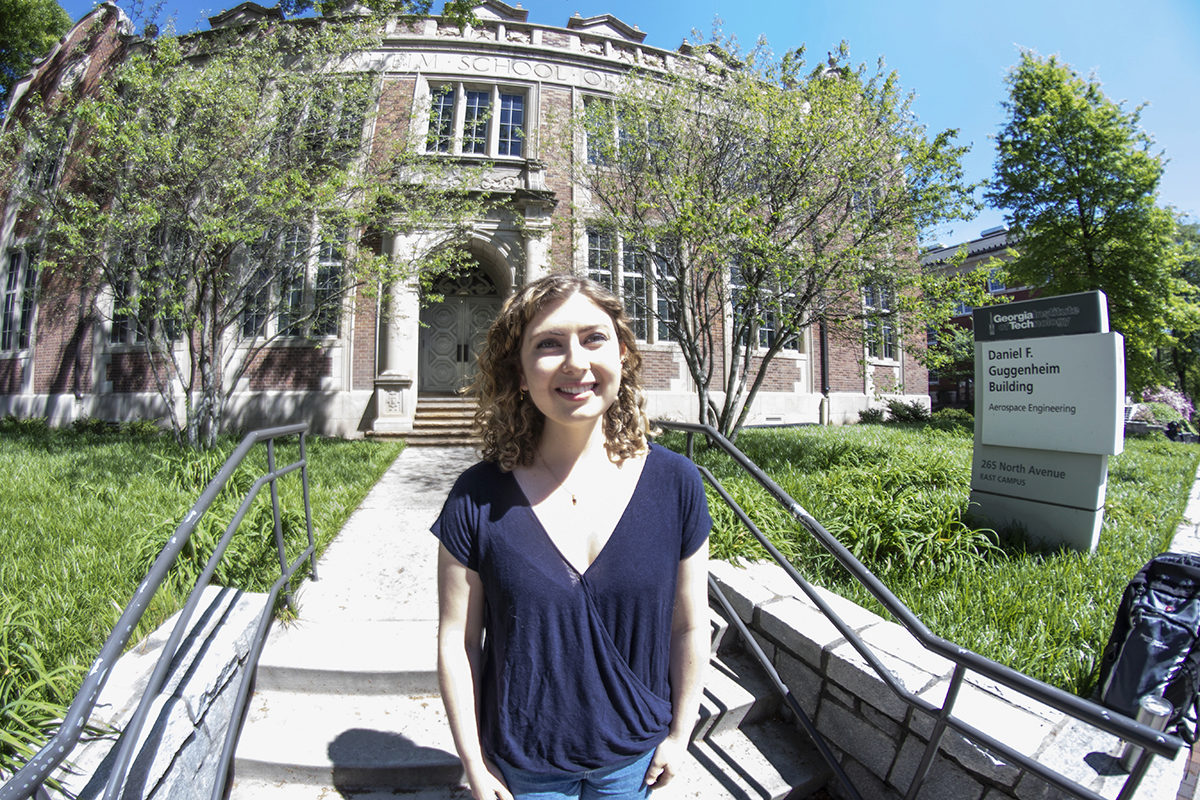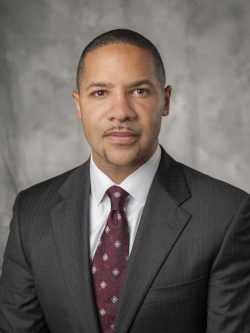
The Future of Electric Propulsion. Graduate student Sara Miller, (BS AE '17) is excited to continue her electric propulsion research under the auspices of a recently granted NSF Fellowship. Ultimately, she's got her eyes on a career at NASA.
The National Science Foundation this week announced that it has selected first-year aerospace engineering grad student Sara Miller to receive a 2019 NSF Graduate Research Fellowship.
 |
|
Prof. Mitchell Walker |
The Smithtown, New York native will use the NSF fellowship to continue research that focuses on the characteristics of engine degradation in electric propulsion engines. Guiding her will be her advisor, Prof. Mitchell Walker, who heads up the AE School's High Power Electric Propulsion Lab.
"Sara is another example of a fearless engineer, the sort of thinker that the NSF Fellowship is designed to encourage," Walker said.
"From her her undergraduate days to now, she's always taken the initiative to explore new ideas and new opportunities - as a researcher here and also at NASA - to create a tailor-made technical foundation and network."
The NSF Fellowship will allow Miller to do a deep dive into her research. That's exactly where she wants to be.
"Ultimately, I want to be able to make better lifecycle predictions for electric propulsion engines, which are highly fuel-efficient - great for space vehicles," said Miller of her doctoral research.
"Engine degradation is a major cause of electric propulsion engine failure. The challenge is to build engines so that they can withstand the harsh environments, in particular, the constant bombardment of ions [plasma] on the engine walls. No one really has a completely accurate picture of what's happening at the plasma surface level. That's what I will be looking at."
Miller said she plans to isolate different processes that are known to be active in electric propulsion engines to get a better idea of how the degradation takes place. In particular, she will be collecting data on electron temperature, ion energy, and the charge state distribution.
"The charge state distribution is really interesting because we look at plasma, the fourth state of matter in the universe (after liquids, solids and gasses), and we look to see how many of the ions have a plus-1 or a plus-2 charge," she said. "This affects the overall charge of the plasma, but it also can tell us about the potential for degradation. I proposed a way of measuring the amount of engine material that is degraded."
In looking through the list of other 2019 NSF Fellows, Miller said she was humbled by the company she now keeps. Turning back to her proposal, she took a deep breath and admitted there was a lot to learn. Then she smiled:
"The great thing about NSF is that they fund the researcher, not the proposal. So if my research sends me in a direction that I didn't anticipate, they will let me go there if I think it's important," she said. "Now that's exciting."
We couldn't agree more.